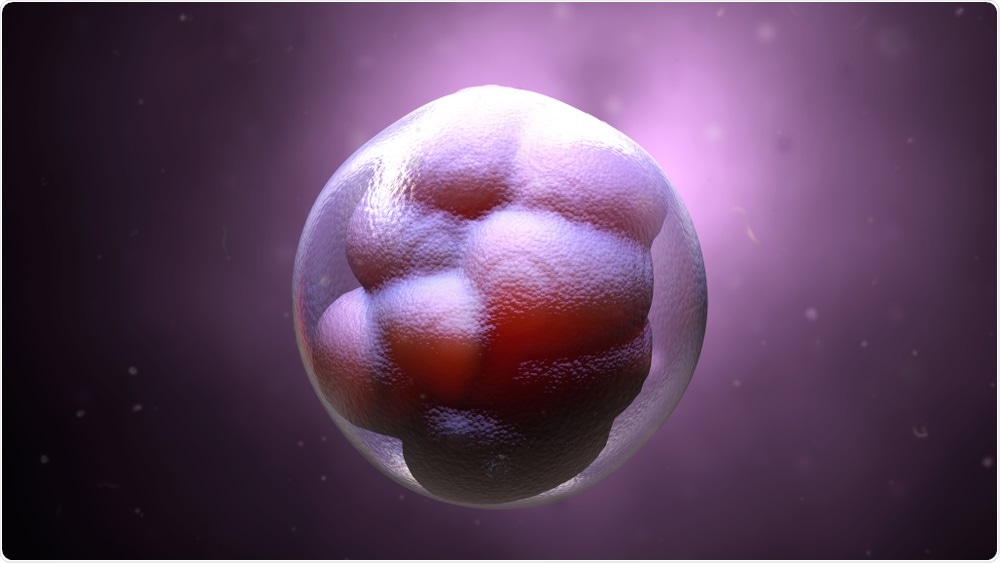
The findings represent a shift in the way recurrent pregnancy loss (RPL) is understood. RPL affects 1-2% of couples, and the cause is unclear in 50% or more of cases.
Bone marrow progenitor cells give rise to either blood cells or other tissue. Once they reach the uterus, following the fertilization of an ovum by a sperm, they mature into endometrial cells that line the inside of the womb.
Examining the role of the bone marrow in pregnancy
The current study traced these cells in pregnancy and found that they made tracks for the uterus, adjoining the implantation site. These cells became decidual cells, a special type of uterine endometrium, which supports the early embryo and allows it to burrow deep inside the lining, a process called implantation. These cells eventually formed the maternal side of the placenta.The researchers had previously developed a new bone marrow transplant procedure whereby they could destroy bone marrow cells but leave the function of the ovaries intact, thus allowing the mice to become pregnant. They achieved this by using antimetabolites, a class of chemotherapeutic drugs that do not poison the cells but deprive them of certain essential components that participate in cell reactions.
The next step was to test the role of the bone marrow progenitors in early pregnancy. This was carried out using mice that lack a protein called Hoxa11. This gene is found only on mesenchymal stem cells in the bone marrow, and in uterine decidual stromal cells.
The absence of one copy of Hoxa11 leaves the mouse able to conceive but unable to carry a pregnancy. The complete absence of both copies of the Hoxa11 means that the mice have defective endometrial development and cannot conceive. The genetic defect inhibits the normal transformation of endometrial stroma into decidua.
The outcome
Hoxa11 deficiency has been found to occur in human conditions that are linked to failed pregnancies, such as endometriosis, submucous fibroids, and miscarriage. The protein plays a part in the implantation of the human embryo too. The current study thus warrants further exploration of the role of Hoxa11 in human pregnancy.The bone marrow is ‘a critical reproductive organ’
It is already known that the bone marrow supplies a variety of blood cells. It also supplies many immune cells which are vital for a successful pregnancy, especially to modulate the interface between the tissues of the mother and the fetus (for instance, at the placenta).This prevents the development of immune responses that could threaten the developing fetus. The bone marrow also donates a few non-immune cells to the uterus in pregnancy which may be seen as endometrial cells.
The current study shows that the bone marrow also sends a large number of mesenchymal stem cells (MSCs) into the bloodstream of a pregnant woman following fertilization. These leave the circulation when they reach the uterus and transform into decidual cells.
These can be recognized by the fact they express prolactin. They affect how a host of other genes are expressed in the uterine tissue, and thus play a deciding role in pregnancy loss.
The researchers conclude:
We are currently translating these findings into humans to better understand the role that these cells play in recurrent implantation failure and recurrent pregnancy loss, two conditions that are unexplained in the majority of cases and have no effective treatment. The findings of this study open exciting new avenues for research into the cause of these conditions as well as developing new treatments for women suffering from them.”
The report was published on September 12, 2019, in the journal PLOS Biology.
Journal reference:
Tal, R., et al. (2019). Adult bone marrow progenitors become decidual cells and contribute to embryo implantation and pregnancy. PLOS Biology. https://doi.org/10.1371/journal.pbio.3000421.






No comments
Post a Comment